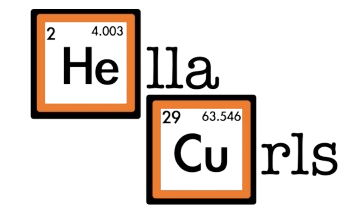Sulfates. You've heard about them, seen them on labels, and maybe even sworn off them entirely. But what’s the real story? In the world of curly hair, sulfates are often painted as the villain. In fact, a study found that 80% of people with curly hair avoid sulfates entirely. But are they truly that bad for your curls, or is it just hype?
Let’s break it down and explore the science, the myths, and what really works for curly hair.
What Are Sulfates?
Sulfates are cleansing agents found in many shampoos and personal care products. Their job is to create that satisfying lather we all love and remove dirt, oil, and product build-up. The most common types are sodium lauryl sulfate (SLS) and sodium laureth sulfate (SLES). While they’re effective at cleaning, they can be a little too good at their job, especially for curly hair.
Why the Bad Reputation?
Curly hair needs moisture, and lots of it. Sulfates, by their nature, can strip the hair of its natural oils, leaving curls dry and prone to frizz. And we all know—dry curls are unhappy curls. The tighter the curl pattern, the more moisture your hair needs, and that’s where sulfates can be problematic.
But here’s the thing: not all sulfates are created equal, and the level of impact can depend on your hair type and the rest of your routine.
Should You Go Sulfate-Free?
Going sulfate-free has become a popular choice for those with curls, and for good reason. Sulfate-free shampoos are gentler and won’t strip your hair of its natural oils. This means less frizz, more moisture retention, and ultimately, healthier-looking curls.
However, if you use a lot of styling products, skipping sulfates entirely can leave build-up behind. In this case, consider alternating between a sulfate-free shampoo and a clarifying shampoo with mild sulfates once a month to keep your scalp and strands clean.
Pro Tip: If you do go sulfate-free, make sure your conditioner is rich and hydrating. Curls thrive on moisture, and a nourishing conditioner will help seal it in.
Are Sulfates Ever Okay for Curly Hair?
Despite the bad rap, sulfates aren’t the enemy in every case. If you have a looser curl pattern or oily scalp, sulfates can actually help remove excess oil and grime. It’s all about balance. The key is moderation. Using sulfates occasionally—say, once or twice a month—can help cleanse your hair thoroughly without causing excessive dryness. The trick is to follow up with a deeply moisturising conditioner or hair mask to restore hydration.
Pro Tip: If you're using a sulfate shampoo, always opt for lukewarm water when washing your hair. Hot water can exacerbate the drying effects of sulfates.
The Alternatives: What to Look for in Sulfate-Free Products
If you’re committed to keeping sulfates out of your haircare routine, here’s what to look for in a sulfate-free shampoo:
- Mild surfactants: Ingredients like cocamidopropyl betaine or sodium cocoyl isethionate are gentle alternatives that cleanse without stripping.
- Moisturising agents: Look for shampoos infused with oils like avocado oil, mango butter, or aloe vera. These will help maintain moisture as you cleanse.
- Clarifying ingredients: Even without sulfates, some shampoos include natural clarifying agents like apple cider vinegar to gently remove build-up.
The Verdict: Are Sulfates Really That Bad?
Sulfates aren’t inherently “bad,” but for curly hair, they can be too harsh when used frequently. If you’re experiencing dry, brittle curls, a sulfate-free routine is worth trying. But if your hair feels weighed down by product build-up, a sulfate shampoo used occasionally might be just what you need to refresh your curls.
The best approach? Listen to your hair. Your curls will tell you what they need!
Final Thoughts
Understanding sulfates and their effects on curly hair is the key to building a routine that works for you. If moisture is your main concern, going sulfate-free can be a game changer. But if your scalp tends to get oily or product-heavy, a balanced approach with occasional sulfate use can keep your curls looking their best.
Experiment, adjust, and find the right products that leave your curls feeling hydrated, defined, and healthy. After all, no one knows your curls better than you!


